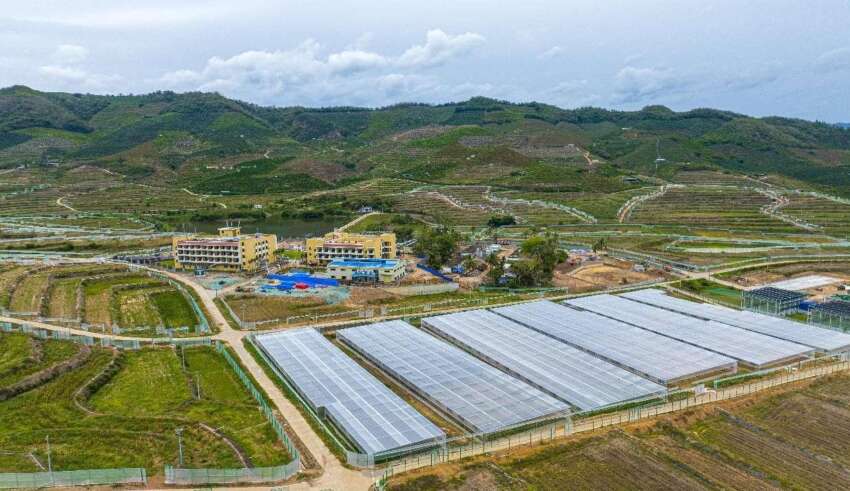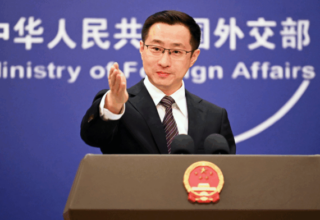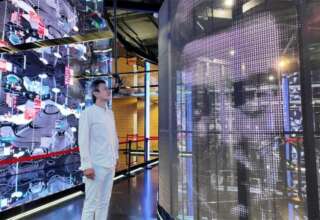
How powerful is the energy generated when artificial intelligence (AI) collides with scientific research? Recently, the 2024 Nobel Prizes in Physics and Chemistry were awarded to scientists in AI-related fields, which highlighted AI’s increasingly significant role in scientific research.
Turing Award winner and academician of the Chinese Academy of Sciences Andrew Chi-Chih Yao believes that the future development of AI science will follow two major trends: advancing from narrow AI toward general AI, and enabling interdisciplinary synergies. New technologies and applications, such as embodied AI, AI-driven biomimicry, and AI combined with quantum science, are expected to emerge in abundance.
In recent years, Chinese scientists have been exploring “AI-driven scientific research” across multiple fields, using AI technologies to shorten R&D cycles and reduce costs, accelerating the integration of AI with scientific research.
Electrolytes, often referred to as the “lifeblood” of batteries, are crucial to the development of next-generation batteries. However, the vast molecular combinations of electrolyte materials make it inefficient to screen each one individually.
To address this situation, professor Zhang Qiang and associate researcher Chen Xiang with the Department of Chemical Engineering at Tsinghua University worked together and led their team to propose a novel “AI-designed lithium-ion battery electrolyte” approach, achieving efficient design and development of advanced electrolytes.
The team developed high-throughput computational methods and software for electrolytes, creating a leading database covering over 250,000 electrolyte molecular structures. It developed a domain-knowledge-embedded large model and software platform for electrolytes, enabling rapid property predictions and precise, targeted design within a molecular space of hundreds of millions. According to Chen, these tools allow researchers to design the most suitable electrolytes based on user requirements.
The deep integration of AI with scientific research is not only elevating the application of AI but also driving a shift in scientific research from an experience-led to a data-driven paradigm.
Li Huihui, a researcher with the Institute of Crop Sciences, Chinese Academy of Agricultural Sciences (CAAS) and deputy director of the CAAS National Nanfan Research Institute, has witnessed the transformative impact of AI technologies firsthand.
“Conventional breeding methods rely heavily on experience. They are time-consuming, and have low efficiency when it comes to improving traits that are highly influenced by environmental factors. With AI algorithms, researchers can rapidly predict field performance of crops before breeders conduct field trials, which significantly shortens breeding cycles,” Li explained.
Globally, around 1,750 plant germplasm banks hold over 7 million germplasm resources. Due to limitations in analytical tools, many valuable genetic resources remain underutilized.
“AI-assisted genomic selection can analyze millions of genotypes within weeks, greatly enhancing the efficiency and precision of the breeding process and presenting vast application potential,” Li added.
In recent years, the CAAS has accelerated innovation through the integration of agricultural science and AI technologies, forming interdisciplinary teams in areas such as biological breeding and intelligent agricultural machinery.
Today, Li is leading a team dedicated to developing AI tools like deep learning-based genomic selection models and a whole-process smart breeding platform to enhance the breeding efficiency of staple crops like rice, corn, and wheat.
Currently, in fields like materials research, life sciences, pharmaceutical development, semiconductors, and environmental science, scientists are exploring the use of AI to shorten R&D cycles and reduce costs.
The integration of AI with scientific research relies heavily on technical support platforms. Yang Xiaokang, executive vice dean and professor of the Artificial Intelligence Institute of Shanghai Jiao Tong University, explained that to enable more faculty members to use AI in research, the university partnered with Baidu AI Cloud to create an AI-driven scientific research platform. With the computational power, large model development tools, and other resources provided by Baidu AI Cloud, researchers have achieved a series of breakthroughs across fields such as chemical synthesis, fluid dynamics, urban science, and law.
Take the design of small molecules to combat HIV as an example. Jin Yaohui, chief engineer of the Artificial Intelligence Institute of Shanghai Jiao Tong University, explained that previously, screening lead compounds took two to three years. With the AI-driven research platform, researchers are able to generate over 250,000 new molecules in less than two minutes and further narrowed down 172 potentially effective molecules within 30 minutes, which greatly enhances the iteration efficiency of molecular design.








